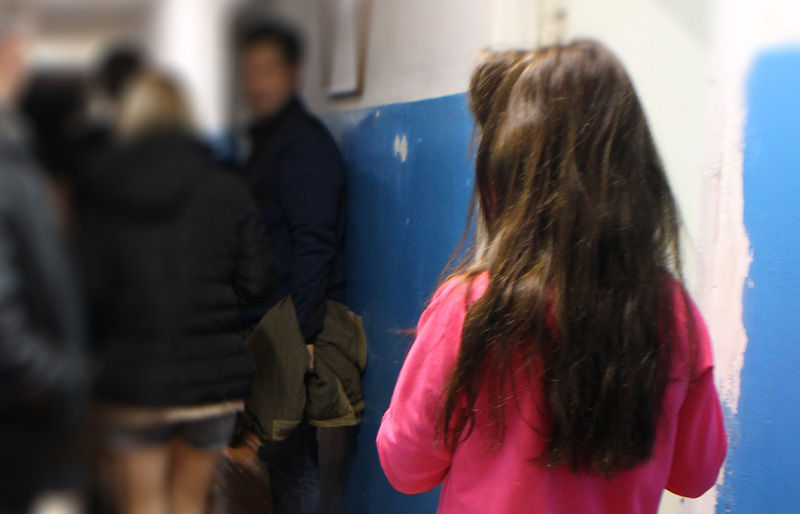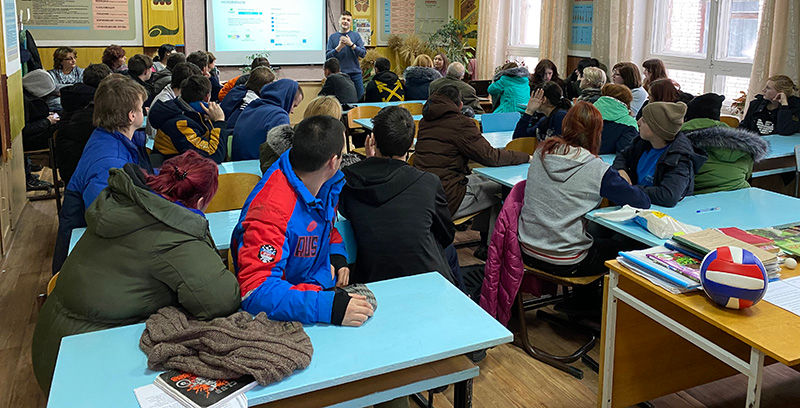Meet Natasha
- helenstaniford
- May 5, 2020
- 3 min read
In today's blog we'd like you to meet Natasha, she is preparing to leave the orphanage system, the only environment she is familiar with, and face life on her own...

Natasha is a 'social orphan'; meaning her parents are alive, but, their alcoholism and neglect meant she was placed in an orphanage. Removal from destructive parents does not end trauma... it only defers the problem and years later, orphans are left having to face behaviours that have affected generations. When Natasha turned 18 she received her identification papers. As a registered 'orphan', she was helped to claim benefits; unusually, she has not blown most of it. She is a quiet and shy girl who has learning difficulties and is very vulnerable, especially when it comes to the damaged relationship with her parents. They try to manipulate her and have their sights set on her small amount of money. Despite not caring for her, they tell Natasha she owes them... her sister and her sister's boyfriend pressure Natasha for money too. A Love Russia mentor now looks out for Natasha and is helping her to stand up to those trying to take advantage... to make difficult choices like cutting off unhealthy and toxic relationships. Her mentor visits the college* where she currently lives among 35 other orphans (these visits are on pause during the COVID-19 crisis).

As a group he talks to them about the challenges they will face. The last session was about money management, how to be responsible and careful with it, which has been helpful for Natasha in particular. As well as teaching, her mentor is showing her practical skills like how to travel in and out of the city in preparation for when she leaves college. At this time she'll be welcomed into a network of other orphans who face similar difficulties. So many orphans repeat the mistakes of their parents, but Natasha wants to be different, she wants to succeed at life but feels alone in this way of thinking. Among her peers she's been told she is 'weird' because she has expressed a desire to be good, honest and try hard. This attitude makes her stand out since 9 out of 10 orphans never find jobs. Her mentor hopes to find Natasha some work experience and he invited her to the orphan graduate weekend (video link) that Love Russia helped organise in March. Like so many she has a need to be loved and belong and has begun calling her mentor 'papa'. He plans to introduce Natasha to Valya (an older orphan girl), who will be a good friend for her.
This is just the start of Natasha's journey, and if she is to avoid the pitfalls so many orphans come up against, she will need these communities of friendship around her and people she can trust. Intergenerational trauma The behaviour of Natasha’s parents is likely a result of their own childhood trauma, which overwhelms the way they think, the way they act and their ability to cope. As they haven’t had the opportunity to heal from their own pasts, their experiences and negative behaviours are now impacting Natasha. Common symptoms of an unresolved traumatic childhood include fear and anxiety, poor relationships, substance abuse and violence; and the impact is passed on from one generation to the next. For Natasha to succeed as she desires to, the cycle of intergenerational trauma needs to be broken. Having relationships with other older orphans who have overcome painful pasts (like Valya) and having reliable adult mentors (like Slava) will help her heal and forgive.
You can donate towards the work that keeps young orphans like Natasha safe.
Comments